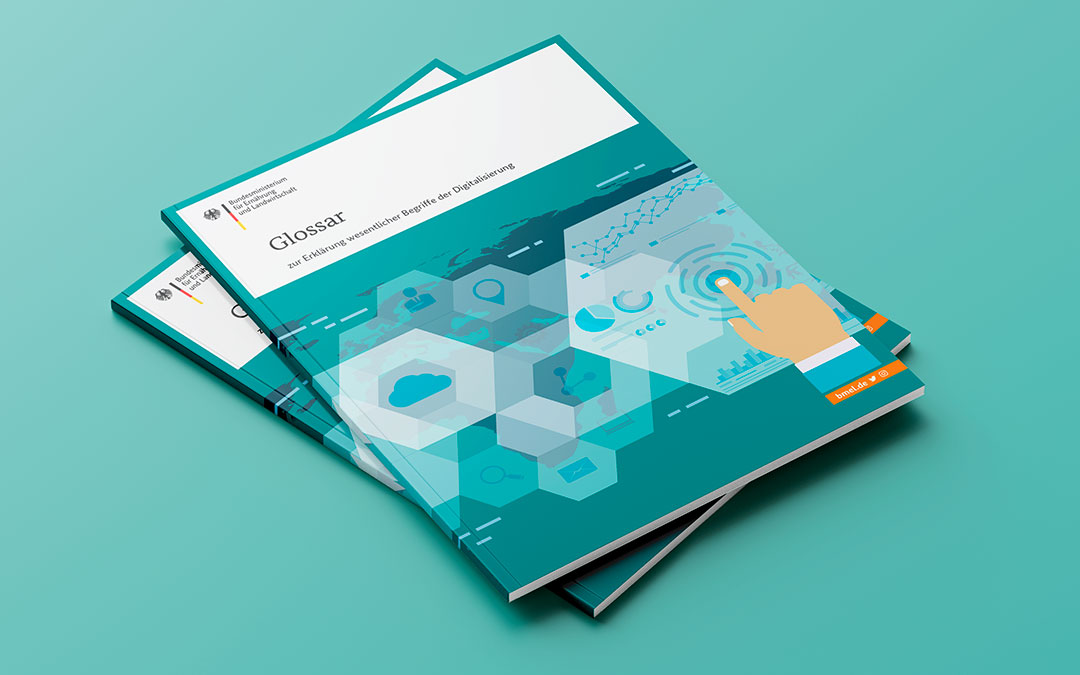What is the difference between data protection and data security? What does a chatbot do? And what is actually meant by a digital ecosystem? A glossary explaining key digitalization terms turns question marks into insights.
Although it is already an omnipresent phenomenon in our society, the opportunities and potential of digitalization have not yet been fully recognized or exploited. In rural areas in particular, digitalization can help to eliminate numerous inherent problems and optimize structures. However, in order to plan and implement targeted digitalization measures, there is often a lack of general technical understanding and knowledge of the specific design options offered by digitalization. To this end, aconium GmbH – on behalf of the Federal Ministry of Food and Agriculture (BMEL) – has developed a handout to explain key terms relating to digitalization. For this purpose, relevant technical terms of digitization were researched and prepared in an easily understandable way using short explanatory texts. Clearly structured into the chapters “Politics and society”, “Data use”, “Digital technologies” and “Digital applications”, the guide makes it easier for readers to find their way around.
The second part of the guide focuses on possible application scenarios for digitalization that can be found in a wide variety of areas of society. In addition to mobility, administration and local supply, these also include areas such as health, culture and education. Specific practical examples are used to illustrate how digitalization measures can be implemented in reality. The so-called “OhneArztPraxis”, for example, already makes it possible to receive medical care without having to consult a doctor on site thanks to a variety of telemedical procedures. And the “Digimobil” of the Brandenburg Consumer Advice Center regularly informs interested parties throughout Brandenburg about consumer protection issues via video chat. Find out about other exciting digitalization measures in the glossary.

